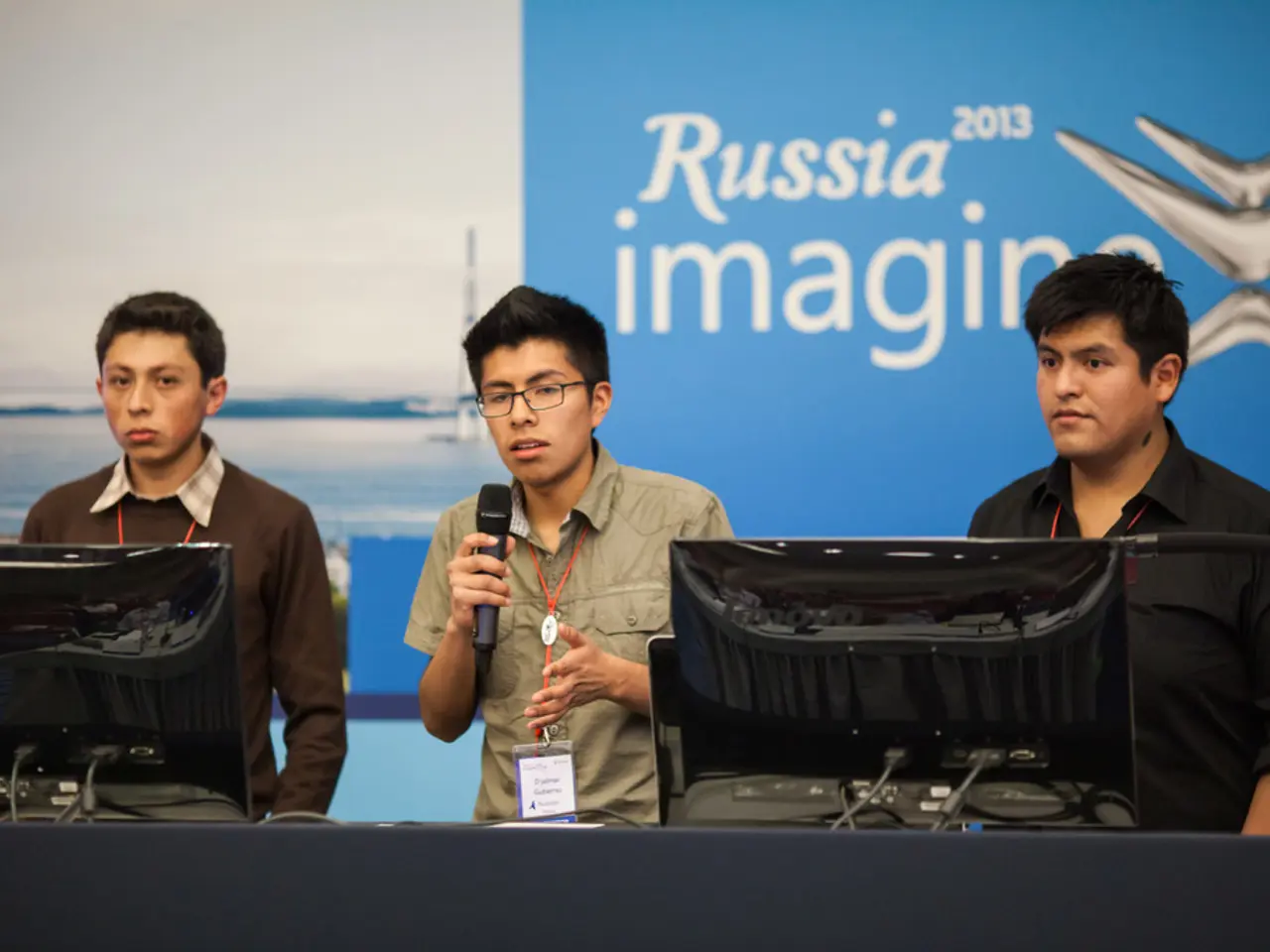Russia imposes restrictions on WhatsApp and Telegram voice calls - Russia imposes limitations on calls made via WhatsApp and Telegram services
In a move aimed at combating fraud, extortion, and recruitment into terrorism and sabotage, Roskomnadzor, the state communications watchdog of Russia, has announced restrictions on voice and video calls on messaging services WhatsApp and Telegram [1][2][3]. The decision comes as part of a broader effort by Russian regulators to tighten control over the Russian part of the internet, following the invasion of Ukraine in 2022 [4].
Russian authorities claim these calls are the primary channels used for criminal activity, and the restrictions are intended to protect citizens [1][3]. To comply with Russian laws and have the calls restored, WhatsApp and Telegram are expected to adhere to Russian legal requirements and cooperate with law enforcement agencies [1]. The Digital Development Ministry of Russia has indicated calls might be restored if the companies comply with local regulations [1].
The specific laws likely relate to requirements for platforms to monitor and filter communications to prevent illegal activities and to provide access to law enforcement upon request. Critics, however, fear that these requirements may compromise user privacy and lead to increased access by authorities [5].
In an effort to replace foreign messaging services, Russia is promoting a government-managed "super app" called Max as an alternative [2][5]. While the restrictions are currently "partial" and do not affect other functions of these apps, the move highlights tensions between Russia's state control priorities and the operating principles of foreign messaging services [6].
Telegram, developed by the Russian entrepreneur Pavel Durov, has faced accusations in Russia and other countries that the service does not do enough to combat criminal users [7]. WhatsApp, owned by the US company Meta, which also owns Facebook and Instagram, has refused to share data with Russian authorities [8].
The restrictions on WhatsApp and Telegram are not the first instance of Russian regulatory action against foreign tech companies. In the past, social media platforms like Facebook and Twitter have been fined or blocked for failing to remove content deemed illegal by Russian authorities [9].
This partial call blocking is a significant development in the ongoing battle between state control and internet freedom, particularly in Russia. As the situation evolves, it will be interesting to see how WhatsApp, Telegram, and other tech companies respond to these restrictions and how they affect the daily lives of Russian citizens.
[1] The Verge [2] Reuters [3] BBC News [4] The New York Times [5] The Guardian [6] Wired [7] The Moscow Times [8] CNBC [9] Al Jazeera
- The Commission, in response to this escalating challenge of cybersecurity and technology, might also be compelled to propose a directive on the protection of workers from the risks related to digital platforms, as they handle data from messaging services and may face exposure to potential cyber threats.
- As the focus of regulatory attention shifts towards ensuring user privacy and maintaining technological sovereignty, it would not be surprising to see the Commission initiate discussions for a directive on cybersecurity measures to safeguard citizens' data from foreign tech companies, such as WhatsApp and Telegram.




